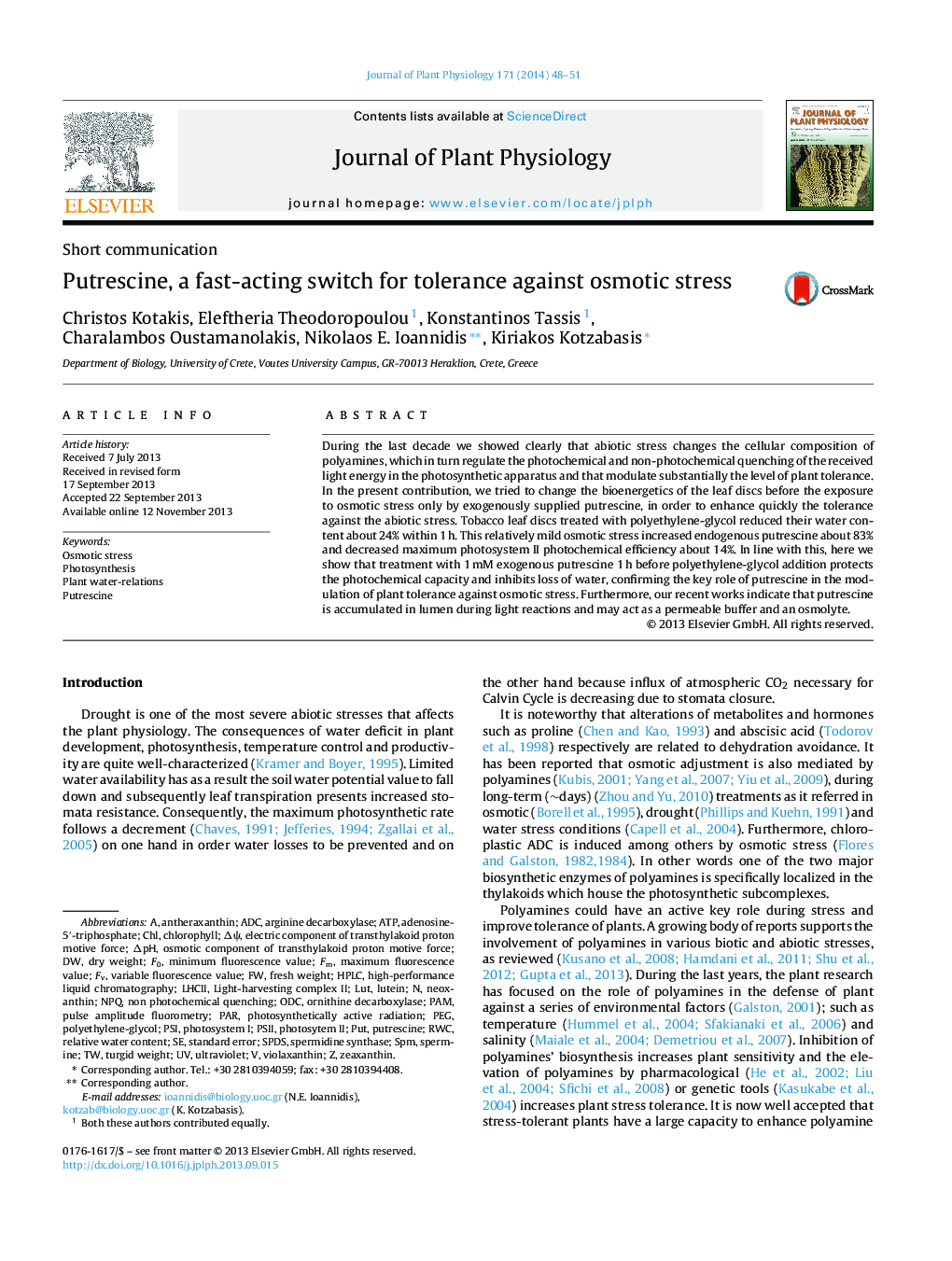| Article ID | Journal | Published Year | Pages | File Type |
|---|---|---|---|---|
| 10876917 | Journal of Plant Physiology | 2014 | 4 Pages |
Abstract
During the last decade we showed clearly that abiotic stress changes the cellular composition of polyamines, which in turn regulate the photochemical and non-photochemical quenching of the received light energy in the photosynthetic apparatus and that modulate substantially the level of plant tolerance. In the present contribution, we tried to change the bioenergetics of the leaf discs before the exposure to osmotic stress only by exogenously supplied putrescine, in order to enhance quickly the tolerance against the abiotic stress. Tobacco leaf discs treated with polyethylene-glycol reduced their water content about 24% within 1Â h. This relatively mild osmotic stress increased endogenous putrescine about 83% and decreased maximum photosystem II photochemical efficiency about 14%. In line with this, here we show that treatment with 1Â mM exogenous putrescine 1Â h before polyethylene-glycol addition protects the photochemical capacity and inhibits loss of water, confirming the key role of putrescine in the modulation of plant tolerance against osmotic stress. Furthermore, our recent works indicate that putrescine is accumulated in lumen during light reactions and may act as a permeable buffer and an osmolyte.
Keywords
SPDSΔpHLHCIINPQODCOrnithine decarboxylaseLUTSPMantheraxanthinRWCChlViolaxanthinPSIIPSINeoxanthinPAMADCΔψadenosine-5′-triphosphateATParginine decarboxylaseOsmotic stressSpermineSpermidine synthaseUltravioletPhotosynthetically active radiationParstandard errornon photochemical quenchingZeaxanthinChlorophyllphotosystem IPhotosynthesisputrescinePUTLuteinLight-harvesting complex IIRelative water contentturgid weightfresh weightdry weightPolyethylene-GlycolPEGhigh-performance liquid chromatographyHPLC
Related Topics
Life Sciences
Agricultural and Biological Sciences
Agronomy and Crop Science
Authors
Christos Kotakis, Eleftheria Theodoropoulou, Konstantinos Tassis, Charalambos Oustamanolakis, Nikolaos E. Ioannidis, Kiriakos Kotzabasis,
